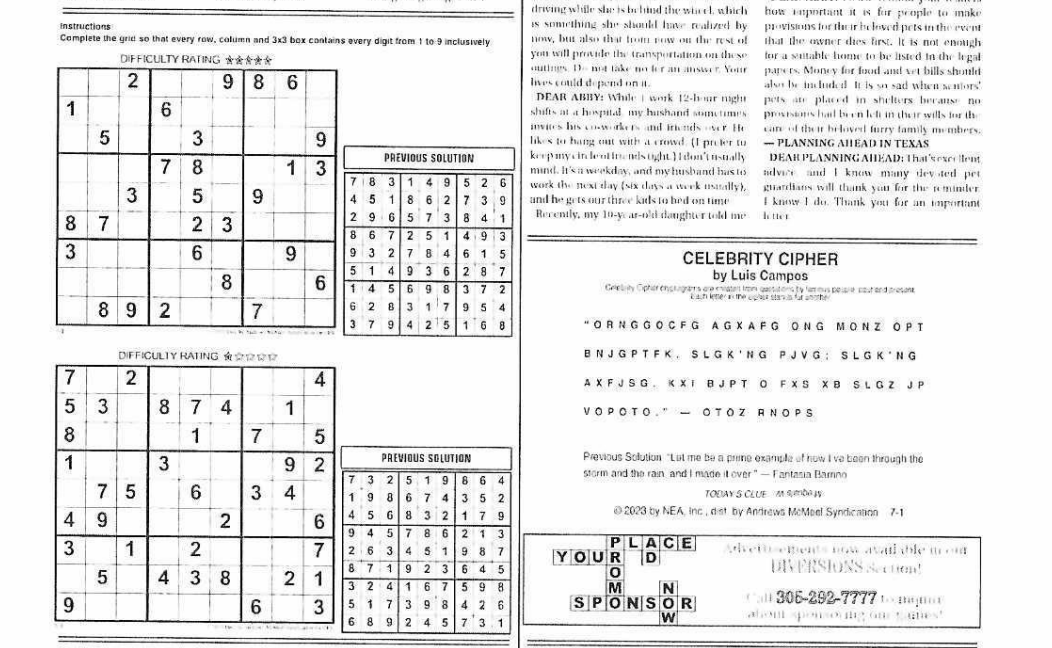Florida Prison Confiscates Newspaper Over ‘Celebrity Cipher’ Word Game
Officials asserted that the puzzle, which appears next to the crossword, “may be used to create coded messages indecipherable by staff.”

A Florida prison refused to deliver copies of a local newspaper to an incarcerated subscriber, claiming that a puzzle game in the publication “may be used to create coded messages indecipherable by staff.”
In July, officials at Avon Park Correctional Institution impounded two issues of the Key West Citizen over concerns with the “Celebrity Cipher,” a syndicated word puzzle that appears next to the crossword. Staff asserted that the game violates a Florida Department of Corrections rule prohibiting “publication[s] … written in code,” according to a copy of the impoundment notices shared with The Appeal. The issues were impounded pending a review by the FDC Literature Review Committee, which is scheduled to meet on August 31.
The Celebrity Cipher is a syndicated game that asks readers to decipher a celebrity quote by solving a puzzle in which each letter is replaced by a different letter. The Citizen publishes the Celebrity Cipher on the same page as the Sudoku, daily horoscopes, and “Dear Abby” advice column.
FDC did not immediately respond to a request for comment.

The Florida Press Association has asked the Literature Review Committee to reverse the decision and allow incarcerated people to receive copies of the Citizen. The impounding of the paper “appears to be arbitrary and irrational” and violates the First Amendment rights of the publisher and its incarcerated subscribers, the organization wrote.
The American Civil Liberties Union and the ACLU of Florida also sent a letter to the committee on Wednesday, calling the decision to impound the newspaper “so overly broad and arbitrary as to be standardless.”
“This seems especially petty because incarcerated people across the country subscribe to paper copies of their local newspaper to stay connected to their home communities,” Corene Kendrick, Deputy Director of the ACLU National Prison Project, told The Appeal.
Censorship is widespread in the Florida prison system, which incarcerates more than 80,000 people. Over 20,000 reading materials are banned in state prisons, according to Florida Today. In the past year, FDC has impounded and confiscated copies of the socialist newspaper, The Militant, and impounded a memoir by journalist Keri Blakinger, who was formerly incarcerated.
“Remember when Florida prisons briefly banned my book last year? Apparently they learned nothing,” Blakinger tweeted on Wednesday. “They’ve decided to out-do their own absurdity by now banning a newspaper because it contains a word puzzle that ‘may be used to create coded messages indecipherable by the staff.’”
